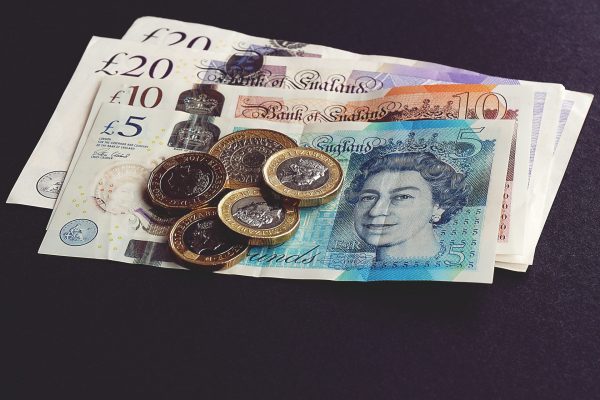
Fiscal responsibility is the key to getting your finances in order. Of course, becoming fiscally responsible can seem like an uphill battle if you’ve been struggling with money for a long time. So, let’s unpack what it really means to be responsible with your finances. We’re going to look at the aspects of a monetary plan that can ensure a fiscally sound lifestyle. The following suggestions could improve your financial present and future when applied to your life on a lasting basis.
Budgeting: Understanding your regular costs.
The first step to becoming fiscally responsible is to create a budget. Or, if you already have a budget, then it might be time to assess it. In fact, regularly checking your budget is important because circumstances change; you need to make sure that your spending and saving habits serve your best interests. The whole point of budgeting is to track and understand your regular costs. You might know how much money you earn and keep a rough mental image of your individual expenditures, but that’s not the best way to ensure that you’re spending your money as wisely as possible.
You need a structured budget that serves as the financial groundwork for your life. You face regular costs, so you should be able to figure out how much of your income goes towards those expenditures. In turn, you’ll be able to assess whether you’re using your money as efficiently as possible. Firstly, you need to separate basic costs and luxuries. Your food costs, rent/mortgage payments, energy bills, and other necessary expenses should be in the same category. Even bills for your phone and internet provider count as necessities in the modern age. Your non-essential category should comprise of costs such as trips, Netflix bills, coffee (it’s not a necessity – be honest with yourself), and so on. Both essential and non-essential expenditures can be reduced. So, let’s talk about that.
Conserving: Reducing wasteful expenses.
If you want to improve your financial present and future, then you need to start conserving money. Many people misinterpret this. They think that being conservative means they have to be frugal and make compromises. But you don’t have to start denying yourself necessities. The goal is to put a stop to unnecessary spending. And this applies to your basic costs. But you don’t have to start sitting in the darkness or turning off the heating to reduce your energy bill. You could, however, reduce your energy bill by getting thicker glazing for your windows, draft excluders for your doors, and insulation for your walls. All of these household improvements would more effectively trap heat in your home. In turn, you wouldn’t have to consume so much energy to keep your house warm. Additionally, your property would be able to keep heat out, so you wouldn’t have to get a fan or an AC unit to cool down your home during the summer. You might also want to save money on your weekly food shop by growing your own fruit and vegetables in your garden; that way, you don’t have to buy them from the supermarket. Plus, you’ll be helping the planet by avoiding the plastic packaging that comes with store-bought produce.
You should also start comparing costs to conserve money. You might have been with a reliable internet provider for a few years, but that doesn’t mean they’re still offering the best deal on the market in your particular location. If you want to conserve money and reduce wasteful expenses, you should always compare costs to see if you could save money. You might be able to save money on a particular piece of clothing you want if you just hold off buying it and see if you can find a better price online. Luxury expenses don’t have to be avoided in life; you just have to have to do your research when it comes to essential and non-essential items that you buy.

Researching: Spending less money on the same things.
In the previous point, we looked at ways in which you could improve your personal finances by reducing wasteful expenses, but you can go beyond simply reducing your consumption or things or sourcing them in different ways. You just need to do your research. If you start searching for discounts online, you could enjoy the same things you currently buy but simply spend less money on them. It’s as simple as that. Now, everybody loves a discount, but not everybody goes to the effort of actively looking for them. But with a quick Google search, you could find deals and offers at your local supermarket, clothes retailer, and perhaps even a particular chain of petrol stations. You could even save money on your phone bills by switching to a provider that gives refunds for the data you don’t use. You might want to check out this SMARTY review if you’re interested in that. It makes sense to get the same amount of data but earn some money back if you don’t use all of it (obviously, figuring out how much data you need is the best way to choose a fiscally responsible phone plan for yourself).
The point is that certain expenditures are unavoidable. You can start growing food in your back garden, but you’ll still have to buy some things from your local supermarket. So, why not try to reduce the cost of that necessary food shop? You need clothes, too (though, you should avoid fast fashion; we’re talking about replacing clothes when they become worn out or too small for you). But why not search for discounts on particular clothes that you want before you commit to buying them? Certain outfits might even be available at other stores for less money, as was discussed in the previous point. The key to improving your financial present and future is to become disciplined. You need to avoid rushing into purchases (even if you’re purchasing a necessity). Do your research and you might just stumble onto some helpful discounts for the things you need. Remember, the internet is your friend when it comes to saving money.
Saving: Thinking ahead.
Of course, one of the best ways to be fiscally responsible and improve your financial future is to start saving. You might not think this would help you much in the present because you have to cover your current costs, but you’d be wrong. Learning to save your money is a great way to improve your finances in the present day. Start to set aside a chunk of your monthly earnings for the future will reduce the amount of money you have available for spending today, but that means you’ll be able to practice more responsible ways of using your income. You’ll be able to put your budget into practice.
Moreover, your budget should account for your savings. If you plan to set aside a particular amount of money on a monthly basis (preferably, you should save on your payday so you resist the temptation of spending it all), then you’ll get into the habit of saving. If you tell yourself that you’ll just save money whenever you can, you might keep forgetting or purposefully neglecting to do so. Set up a standing order so you can automatically send a fixed payment to yourself on a regular basis. If you transfer a sum of money from your checking account to your savings account every month, you’ll gradually accumulate a decent sum of money for the future. It doesn’t even have to be a big sum of money. Even small savings will add up to something substantial over time.





